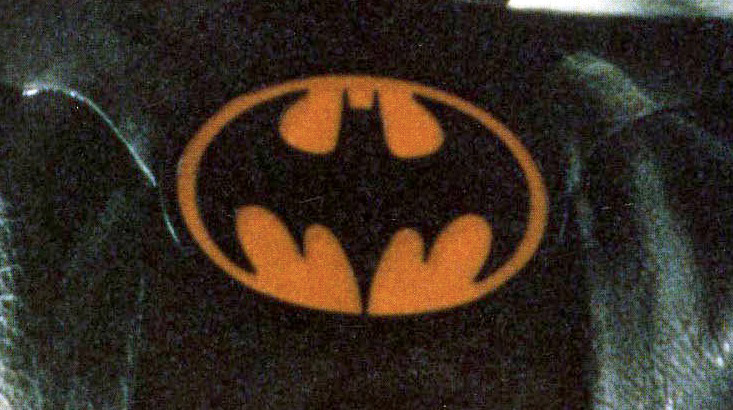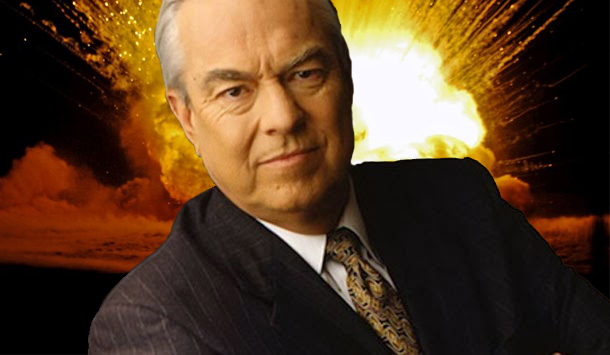“Dive, Frenchy! Dive, damn you!” hollered Bill, hauling himself back to his feet as the crew slowly recovered from the blast. Alarms blared angrily throughout the sub and Bill’s sound technician’s head was bleeding.
“But monsieur,” Frenchy cried, his dishevelled hair falling in his face, “zees boat, she is not rated for depths —”
“Don’t argue with me!” Bill grabbed Frenchy by the collar and held the stolen disk in front of his face. “We’ve got six renegade Russian submarines who will do anything to get their hands on this. We’ve got depth charges falling all around us. And there’s an underground cave system directly beneath us on the ocean floor, which I’ve explored in another documentary here on A&E, The Unexplained: Mysteries of the Depths.”
“Bill, that klaxon’s really cutting into everything,” said Phil, the sound technician. “We might have to loop this when we get back.”
“If we get back,” muttered Frenchy.
Bill tore Frenchy’s beret from his head and slapped him across the face with it. “Frenchy, are you going to give that order … or am I?”
Frenchy sighed. “Mon dieu.” He turned to face his crew. “Take her down. Stern planesman, fifteen degrees down bubble.”
“Mon capitan,” said a crew member, “she will fly apart!”
“Oui,” said Frenchy dully. “Oui.”
As Frenchy gave further orders the deck began to tilt beneath their feet. Charts and papers slid from the table and poured onto the deck. Bill’s cameraman, Carl, grabbed an overhead rail for support while continuing to shoot with his free hand. Bill turned to the lens, pausing as the makeup girl gave him a quick powder.
“On a submarine,” Bill intoned, his resonant voice cutting through the chaos around him, “there’s no such thing as a ‘routine dive.’ As the boat submerges, the pressure on the hull from the surrounding water increases, and so does the tension in the air. There is an added urgency and care in the way these men go about their jobs. They know that, a quarter-mile below the ocean’s surface, there are no second chances. They know that –”
Suddenly a noise like a pistol shot ripped through the cabin.
“What the hell?” said Bill.
“Sacre bleu!” said Frenchy, shouting to be heard over the eruption of conversation among his crew. “The hull rivets, they are flying loose!”
Two more steel bolts burst from their sockets and ricocheted through the cabin. One hit a monitor and shattered it; the other struck Phil in the forehead, killing him instantly.
“Phil!” Bill hollered, holding Phil’s lifeless corpse in his arms. “Noooooo!!”
Carl retreated under the table and continued filming. Men rushed from station to station, ducking their heads and protecting themselves with their arms while all around them the ship groaned and cracked with the ever-mounting pressure. Frenchy surveyed the ruined monitor.
“Main sonar control,” he said, looking down at Bill cradling the dead crew member. “Until we fix her, we are flying blind.”
“We keep going,” Bill said grimly.
“Monsieur Bill, you do not understand. We cannot keep going without-”
“Damn it, Frenchy!” Bill leapt to his feet and threw a solid left into Frenchy’s jaw. Frenchy dropped to the deck. The crew stopped to watch, aghast; an eerie silence fell over the room, punctuated by the increasing groaning of the hull.
“Diving officer,” Bill said, breathing heavily, his face shining with sweat, “what’s our depth?”
The diving officer spoke no English. Another officer read the guage: “Nine hundred and eighty meters.”
“Get us down to one thousand and fifty. Then level your descent and bring us about on a course of 35 degrees, speed five knots. Follow that for two minutes.”
The officer relayed these instructions to the diving officer, who burst into a tirade in impassioned French.
“He says even if the boat does not crush like paper, there is no help for us down there,” the officer translated. “He will not follow this course.”
Bill glanced down at the body of his dead technician, blood from his head still oozing onto the floor. Damn it. It’s all going to be for nothing.
“Take the boat down,” said Frenchy suddenly, pulling himself to his feet. A red welt was growing on his chin. “We have come zees far. We will trust zees American a little longer, heh?” He smiled at Bill, who nodded. He repeated the orders in French, then added, “Sound collision alert. We must be ready for anything.”
Bill and his team crouched down along the wall as the crew drove the sub ever further down. The grinding of the hull plates grew louder, ever louder, until ordinary conversation was impossible. Warning sirens rang incessantly. The lights began to flicker.
“Carl, let’s roll,” Bill said.
“Bill, it’s bedlam in here!” Carl said. “And our sound guy’s dead!”
“Never mind that. There’s work to do. Meg, powder me and then pick up that mike.”
Meg patted the shine from Bill’s face and gingerly picked up Phil’s boom mike. Bill faced the camera once again.
“The sea is an unforgiving, merciless mistress. Even now she tears at the hull of our ship, searching it for weaknesses. We are now engaged in a race against time-a race we never wanted to run. Can we make it to the bottom before our vessel tears apart? Will we find the protection and assistance we need? These questions-”
A terrific crash sounded deep within the ship. Officers shouted in French.
“Hull breach!” Frenchy said. “How bad?”
“Capitan!” an officer yelled. “We have reached the destination, and …”
“And what?” Frenchy replied. “Zees boat, she will be filled with water in five minutes!”
“I cannot be sure,” the officer stammered. “But I could swear … there is another ship alongside us!”
Frenchy looked at Bill, a look of dumbstruck surprise on his face.
Bill smiled at him. “Shall we see who’s at the door?” Then, turning once more to the camera:
“That’s next … here on A&E.”


